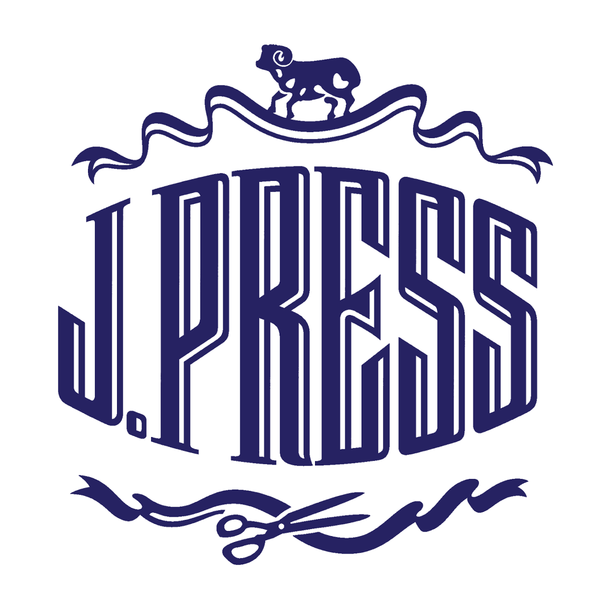My grandfather, the eponymous J. (Jacobi Press) was largely responsible for the so-called Odd Jacket (sport coat) in America. All because of World War I and its aftermath.
Beginning with the Guns Of August in 1914, Grandpa Press’s merchandise including tailoring materials, raincoats, Fedora hats, sweaters, shirts, neckwear, hosiery, were virtually all imported from the British Isles. The whole shebang.
He wanted to fill his stock long-term before the Kaiser closed it for him. In 1914 a salesman for a firm producing fine British woolens called on my grandfather to look at the line of hand-loomed tweed fabrics extremely popular in England at the time. The salesman had little luck in the early days of The Great War finding proper outlets in the United States for his line. He was thunderstruck that my grandfather bought his wares: J.Press was among the first in the custom tailor trade to import British cloths and a leader in that field, continuing post-World War II to do business with that first firm, based in Galashiels, Scotland.
Jacobi Press knew how to entice Yale customers into his gabled York Street emporium and by now, no longer needed to knock on doors in the dormitories. The following ad appeared in a 1915 Yale Daily News and told the story:
As The First World War approached the circumstances in his ads changed.
After the war Jacobi Press returned to civilian priorities, becoming the first retailer to sell sport coats separate from trousers, usually blue flannel blazers sporting a college crest and monogrammed brass buttons. Shetland jackets that in the past he sold as tweed suits were now matched with grey flannels. He was the first custom tailor in New Haven who produced ready-made clothing, keeping his custom workrooms busy off-season converting the previous season’s inventory of custom fabrics into a ready-to-wear collection. The lingering characteristic of J. Press ready-to-wear is its derivation from custom clothing. My grandfather captured the loyalty of boarding schools with travel exhibits throughout the Northeast at St. Paul’s, St. Mark’s, Groton, Middlesex, often referred to as “the St. Grottlesex Elite” as well as Andover, Exeter, Hotchkiss, Taft, and Choate.
He further enlarged his business with graduates after they left Yale. Salesmen who befriended their clients in New Haven took measurements and orders from customers in hotels across America. My grandfather also opened a showroom in New York in 1912 on Lower Broadway eventually becoming a more permanent fixture in midtown at Madison Avenue and
44th Street. Other branch stores followed on the first floor of the Delta Upsilon fraternity at Harvard, Nassau Street in Princeton and in my era, San Francisco and Washington, D.C.
Grandpa’s penchant outfitting undergraduates, alumni, and hangers on continues to this day with the recent opening of our gleaming emporium on 262 Elm Street around the corner from his original shop together with the J. Press Pennant shop at 501 Madison Avenue complementing our full-bodied Manhattan headquarters, adjacent to the Yale Club on Vanderbilt and 44th Street:
Boola Boola—Time Marches On


9 comments
Great story!!! What a wonderful person! I b ought my Camel’s Hair Jacket in Fall of 1980 and several Harris Tweeds etc., over the years!
Rev. Father Nicholas Dilendorf ’82
Holy Ghost Ukrainian Orthodox Church
Coatesville, PA.
I guess I qualify as a “hanger on” but there is no finer shop in the U.S. selling quality menswear than J.Press. Your sales force is superb( George Montoya in D.C. and Robert Wolf in New York). and others, your tailoring is precise and your merchandise is beyond reproach. You have adapted to our fickle culture without the slightest compromise and J. Press remains the Gold Standard.
Wonderful JPress History
Customer for Years
John Lee
Columbus OH
Greenwich Ct.
Very nice history. One noticed many old photos of men in odd jackets and white flannel trousers.